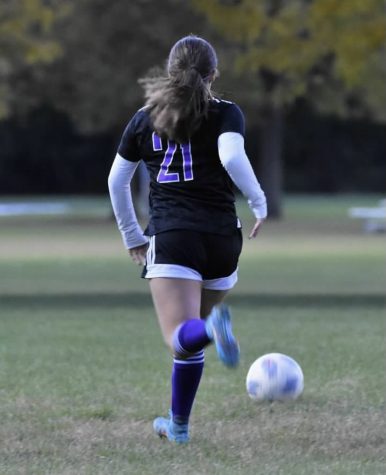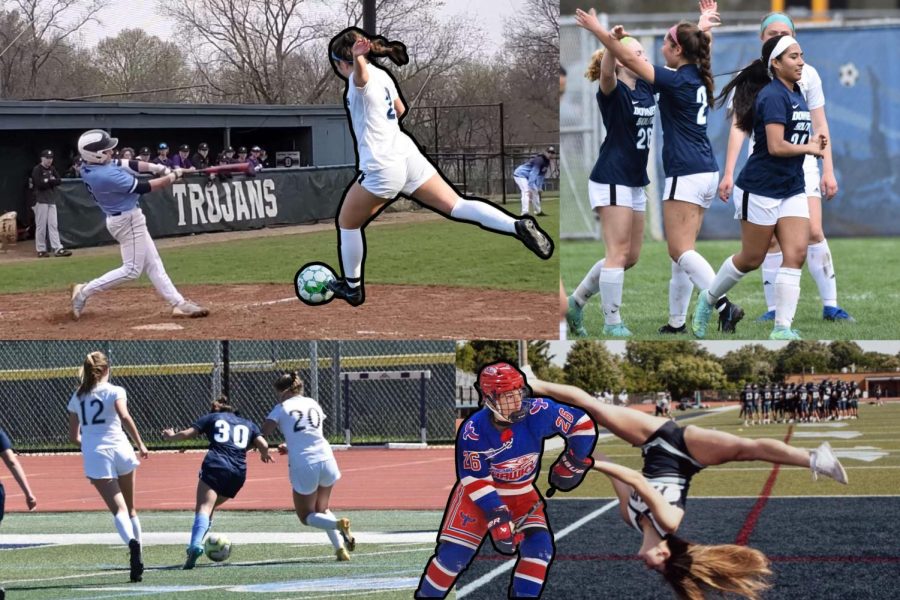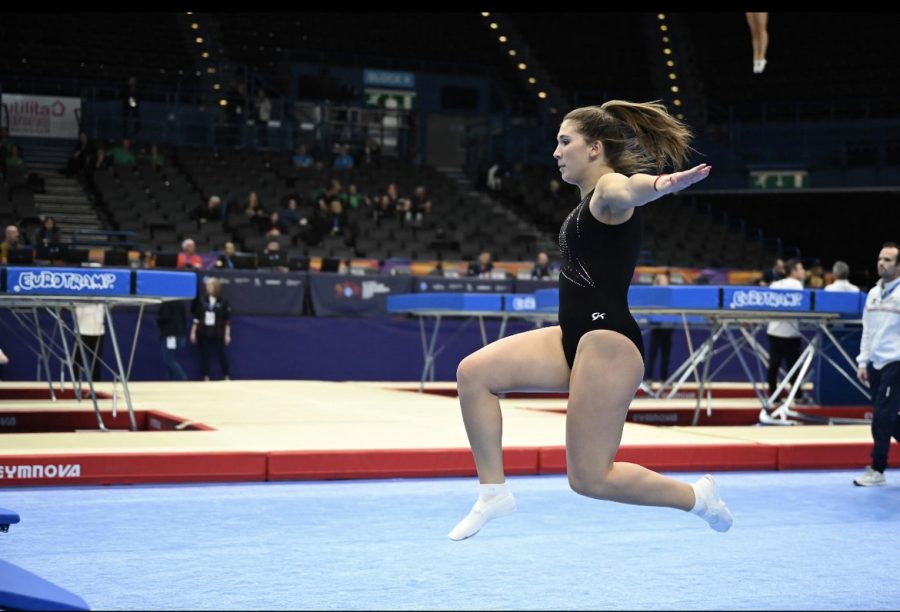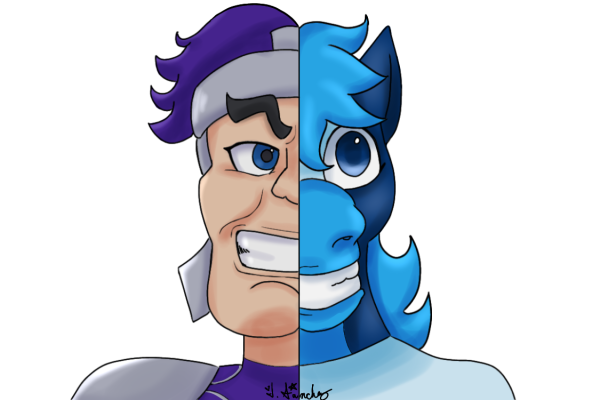Mind, body and mental health: The student-athlete struggle
Athletes face a variety of mental struggles, including fear of failure, underperforming and exhaustion.
November 11, 2022
Racing heart, sweating, heavy breathing, overthinking; these are all exhausting symptoms athletes experience during competitive situations. But for athletes with performance anxiety, these feelings often materialize even before stepping onto the field, mat or court. The fear of “choking,” described as a decrease in performance under pressure, is not the only hurdle faced, as athletes have to fight multiple mental battles to protect their well-being.
The topic of athlete mental health is prevalent in today’s societal discussion, as the acknowledgement of sports-related mental exhaustion, depression and anxiety is rapidly increasing. However, a major stigma surrounding mental health still exists, especially within the athletes themselves.
In a student-athlete well-being study conducted by the NCAA (National Collegiate Athletic Association), over 9,800 student-athletes from around the country responded to questions regarding athlete well-being. When asked if they would feel comfortable seeking support from a mental health provider on campus, less than half of men’s and women’s sports participants answered they would agree or strongly agree with that statement.
Many factors lead to the decision of withholding mental health concerns. Athletes may think opening up to coaches and teammates will cause disappointment or removal from a highly-sought after position on their team.
Self-denial is another major element at play. Athletes are conditioned to be physically healthy individuals, which in turn can lead to the belief that internal struggles with their mental health is not acceptable. This stops them from reaching out when issues do arise.
For junior Aaron Davis, the pressure to perform well on the baseball field in hopes of being recruited for a college team is what fuels his daily perseverance to not only hone his athletic talents, but also protect his mental well-being. Davis has been playing baseball since he was four years old, and his journey with his mental game was no easy feat.
“If I get let down mentally or physically it will bring the team down with me. It’s important for me to always stay positive and bring the team morale up. It is very hard for me to play well every single game knowing that there are eyes on me,” Davis said.
It is very hard for me to play well every single game knowing that there are eyes on me.
— Aaron Davis
The same pressure to avoid mistakes and not dissatisfy others applies to senior Emily Petring. Petring is committed to play Division I soccer at Coastal Carolina University and continuously works to overcome stressors in game situations.
“A time I felt pressured was during the National Championship for my club’s National Pro League game. It was a stressful game knowing I couldn’t let anyone affect me. I had just missed a great shot to score and I got so down on myself, but I knew I couldn’t show it until I had pushed myself to get a goal and I did,” Petring said.
Mental health issues can also arise from fear of failure. A constant dread of underperforming or displeasing a coach can cause stress that negatively affects an athlete’s mental state. In a study done by The American College of Sports Medicine, approximately 30% of women and 25% of men who are student-athletes reported having performance anxiety.
Junior Hannah Galvan developed performance anxiety while playing for harsh coaches during a club soccer season.

“When a coach said cruel things to me, I would be so scared to mess up that I would be scared of going to practices and games. I couldn’t eat because I got so nauseous thinking about it. Every time I made a mistake in practice I was just waiting to get screamed at and to be told a punishment to do such as suicides or push-ups; that’s when I started to fall out of love with my sport,” Galvan said.
Her twin sister Maeve Galvan had similar experiences while playing for the same coaches and is constantly working to improve her mental health.
“I always try to keep a positive mindset, and when my coach does say things I need to fix, I will try my best to fix them. But when my coach says rude things to me I try to block it out and remind myself that I’m enough, and that I’m trying my best and doing my best,” Galvan said.
Criticism is great for players but not when it’s continuing to put you down and make you feel worse about yourself.
— Maeve Galvan
Athletes commonly react to painful experiences and emotions by utilizing the same coping skills that help them push through difficult moments in their sport– ignoring the pain and focusing on “being tough.” In an athletic culture where mental toughness and grit are essential skills to develop, athletes often feel the need to brave their struggles alone and feel shame in reaching out. As a result, many coaches look for warning signs and symptoms of mental health issues that are common in athletes.
Varsity boys swim and dive coach Bryan Szweda focuses on noticeable changes in behavior, personality, and body language when observing his team. In order to decrease the stigma surrounding mental health as a coach, Szweda implements multiple approaches of supporting his athletes.
“I encourage my athletes to take care of both their physical and mental health. I try to set a culture where my athletes feel comfortable talking to me about things that they are going through and if need be, taking time to deal with their mental health. We have a close-knit group on our team and many of our athletes feel comfortable speaking to other members of the team if they are struggling,” Szweda said.
Organizations such as Athletes Against Anxiety and Depression and Athletes for Hope provide resources to struggling athletes, create a platform for those wishing to share their mental health stories and sponsor a variety of activities and events aimed at supporting athletes. In addition, the NCAA’s Sport Science Institute created an educational resource page regarding athlete mental health, which can be found here.











